Here’s what we thought we knew: IgA deficiency leads to anaphylactic transfusion reactions. Jerry Sandler says, “not so fast!”

Dr. Jerry Sandler
Where We’ve Been
Patients who are severely IgA deficient (defined as less than 0.05 mg/dL) may form antibodies against IgA. These antibodies, traditionally detected on a funky lab test called “passive hemagglutination inhibition assay (PHIA)” were thought to lead to a nearly immediate, horrific anaphylactic transfusion reaction when such a patient was transfused blood components containing normal amounts of IgA. Anaphylactic reactions (more accurately called “severe allergic reactions” in most hemovigilance systems) are awful, and are characterized by respiratory and circulatory collapse very early in the transfusion. As a result of this reported association, patients with histories of IgA deficiency often receive products treated to avoid IgA exposure (washed cellular products like red cells and platelets, and plasma products collected from IgA deficient donors).
But Wait!
Dr. Gerald Sandler noticed something when he was in charge of one of the main reference labs in the United States: Hardly anyone who had true anaphylactic reactions had IgA deficiency and anti-IgA! Over the years, Jerry has published numerous articles on this issue, culminating in a landmark paper in Transfusion from 2014/15, called “The entity of immunoglobulin A-related anaphylactic transfusion reactions is not evidence-based.” In this interview, Jerry outlines both traditional thought and current evidence for the association (or lack of association) of IgA deficiency, anti-IgA, and anaphylactic transfusion reactions.

Dr. Jerry Sandler
Where We’ve Been
Patients who are severely IgA deficient (defined as less than 0.05 mg/dL) may form antibodies against IgA. These antibodies, traditionally detected on a funky lab test called “passive hemagglutination inhibition assay (PHIA)” were thought to lead to a nearly immediate, horrific anaphylactic transfusion reaction when such a patient was transfused blood components containing normal amounts of IgA. Anaphylactic reactions (more accurately called “severe allergic reactions” in most hemovigilance systems) are awful, and are characterized by respiratory and circulatory collapse very early in the transfusion. As a result of this reported association, patients with histories of IgA deficiency often receive products treated to avoid IgA exposure (washed cellular products like red cells and platelets, and plasma products collected from IgA deficient donors).
But Wait!
Dr. Gerald Sandler noticed something when he was in charge of one of the main reference labs in the United States: Hardly anyone who had true anaphylactic reactions had IgA deficiency and anti-IgA! Over the years, Jerry has published numerous articles on this issue, culminating in a landmark paper in Transfusion from 2014/15, called “The entity of immunoglobulin A-related anaphylactic transfusion reactions is not evidence-based.” In this interview, Jerry outlines both traditional thought and current evidence for the association (or lack of association) of IgA deficiency, anti-IgA, and anaphylactic transfusion reactions.

About My Guest:
Dr. S. Gerald Sandler is Professor of Pathology and Medicine at Georgetown University School of Medicine, Washington, DC, and Medical Director, Transfusion Service, MedStar Georgetown University Hospital. He was educated at Princeton University (AB), Harvard and Tufts Universities (pre-medical), and New York University School of Medicine (MD). His post-graduate training was at the NYU-Bellevue Hospital Medical Center and National Institutes of Health. Dr. Sandler is a Fellow of the College of American Pathologists (FCAP) and a Fellow of the American College of Physicians (FACP). He is an Honorary Member of the International Society of Blood Transfusion.
Dr. Sandler served as Associate Vice President and Chief Medical Officer of the American (National) Red Cross Blood Services. He was Medical Director of the Red Cross’ National Reference Laboratories and the Rare Donor Registry. He has authored or co-authored 220 scientific journal articles and edited three books on immunohematology and transfusion medicine.
DISCLAIMER: The opinions expressed on this episode are those of my guest and I alone, and do not reflect those of the organizations with which either of us is affiliated. Neither Dr. Sandler nor I have any relevant financial disclosures.
Further Reading:
- 2014 paper outlining Dr. Sandler and group’s position on IgA deficiency-anaphylactic reaction link: Sandler SG et al. The entity of immunoglobulin A–related anaphylactic transfusion reactions is not evidence based. Transfusion 2015;55:199-204.
- 1994 paper showing flaws in the link, with vast majority of severe allergic reactions not associated with IgA deficiency and 1/1200 donors showing IgA deficiency with anti-IgA: Sandler SG et al. Hemagglutination Assays for the Diagnosis and Prevention of IgA Anaphylactic Transfusion Reactions. Blood 1994;84(6):2031-2035.
- Original paper identifying IgA deficiency-anaphylactic reaction link: Vyas GN et al. Anaphylactoid transfusion reactions associated with anti-IgA. Lancet 1968;ii:312-5.
- 2011 editorial in Transfusion on anaphylactic reactions: Sandler SG and Vassallo RR. Anaphylactic Transfusion Reactions. Transfusion 2011;51:2265-2266.
Music Credit
Music for this episode includes “Cuando te invade el temor” and “Reflejo,” both by Mar Virtual via the Free Music Archive. Click the image below for permissions and license details.




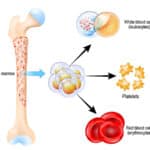

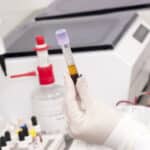



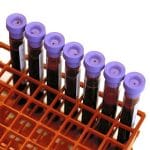

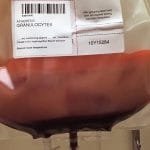
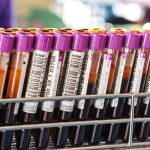
Joe, This was great and so clinically real-world applicable. This query just came up to me a week ago. thanks, Carolyn
Thank you, Carolyn! I get questions about these reactions often, too.
-Joe